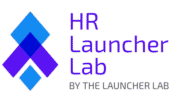Master Compensation and Benefits with Ease
Designing competitive compensation and benefits packages can be a challenge for startups and scaling businesses. Without the right resources, you risk losing top talent, overspending, or falling short of industry standards—impacting your growth and team morale.
Imagine a strategy that simplifies compensation planning and benefits administration, empowering your business to attract, retain, and motivate top talent. By leveraging expert guides, proven templates, and trusted vendor partnerships, you can build a compensation and benefits system that aligns with your growth goals and employee satisfaction.
Disclosure: This page may contain affiliate links, meaning we receive a commission if you decide to make a purchase through our links, at no cost to you.
How-To Guides
Expert Advice for Compensation and Benefits Success
These expert how-to guides on compensation and benefits will help you tackle these pain points head-on and create a strategy that works for your growing business. Here’s what you can do today:
Browse Compensation & Benefits Guides
How to Run Open Enrollment Communications That Employees Actually Read
The Solo HR Practitioner’s Complete Guide to Benefits Open Enrollment at SMBs
Unemployment Insurance for SMBs: What Every Employer Needs to Know
Employee Discount Programs: A Comprehensive Guide for HR Leaders
Compensation & Benefits for Small Businesses: A Practical 2026 Guide
A Practical Guide to Geographic Pay Differentials for Employers
Templates
Done-For-You Total Rewards Templates
Figuring out pay and benefits can get complicated, especially when you’re growing fast and trying to keep things fair. These easy-to-use templates take the guesswork out of building total rewards packages that make sense for your team and your budget.

Merit & Bonus Planner (Excel Template)
Plan and track compensation increases with ease. The Merit & Bonus Planner is a fully customizable Excel template that automates merit and bonus calculations, tracks spend against budget, and helps HR and finance leaders in scaling businesses run compensation cycles with speed and precision.
Editable and reusable — no need to start from scratch.
Disclaimer: This tool is provided “as-is” and does not include legal or financial advice.
Open Enrollment Communication Toolkit (All-in-One)
A plug-and-play Open Enrollment communication toolkit designed for lean HR teams at scaling businesses. Includes editable email templates, FAQ, web-based planner, benefits guide, presentation deck, and promotional flyers. Launch your OE campaign with clarity and speed.
Disclaimer: This product is provided as-is and does not constitute legal or benefits advice. Sample content is intended for illustrative purposes only.
Services
Compensation and Benefits Services That Support Growing Teams
Creating the right pay and benefits structure is key to keeping your team motivated and your business competitive. Our services are built to help you design, update, and manage compensation plans that scale with your company. From salary benchmarking to benefits planning and compliance support, we make it easier to offer total rewards that work for your people and your bottom line.
Tools & Service Providers
Resources to Simplify Compensation and Benefits Management
Managing compensation and benefits can be complex, especially as your business grows and employee expectations evolve. It’s not just about finding the right tools—it’s about leveraging trusted resources that empower you to design competitive packages, streamline administration, and stay ahead in the market.
To help you succeed, we’ve curated a selection of industry-leading solutions. From compensation technology to benefits brokers, these tools and providers will help you reduce administrative burdens, enhance transparency, and focus on attracting and retaining top talent.

Become a Member and Stay On Top of Business
As a member, you’ll gain access to exclusive content, one-on-one consulting sessions, live webinars, and more—all designed to give you an edge in attracting, engaging, and retaining top talent while managing HR compliance. Join today to unlock premium resources that empower you to build a high-performing team with confidence.
Frequently Asked Questions
How do small businesses create a compensation structure?
A compensation structure includes job leveling, market benchmarking, salary ranges, and documented pay policies. These elements help maintain fairness and competitiveness.
What benefits do SMBs typically offer?
Common small-business benefits include medical, dental, vision, retirement plans, paid time off, and wellness programs. Some states require paid sick leave or paid family leave.
How often should salary ranges be reviewed?
Salary ranges are typically reviewed annually, though high-growth companies may update them more frequently to respond to market changes.
What is pay transparency and where is it required?
Pay transparency laws require employers to disclose salary ranges in job postings or during recruitment. States such as California, Colorado, Washington, and New York have mandatory requirements.
How can SMBs improve pay equity?
Pay equity improves through structured job leveling, consistent compensation decisions, regular pay audits, and clear documentation of salary rationale.
What factors affect benefit costs for small employers?
Costs vary based on employee demographics, regional pricing, plan design, and employer contribution strategy. Annual renewals allow employers to control rising costs.
How can HR Launcher Lab support compensation and benefits planning?
HR Launcher Lab provides salary band templates, compensation guides, pay transparency resources, and vendor comparisons to help SMBs build scalable, compliant programs.






